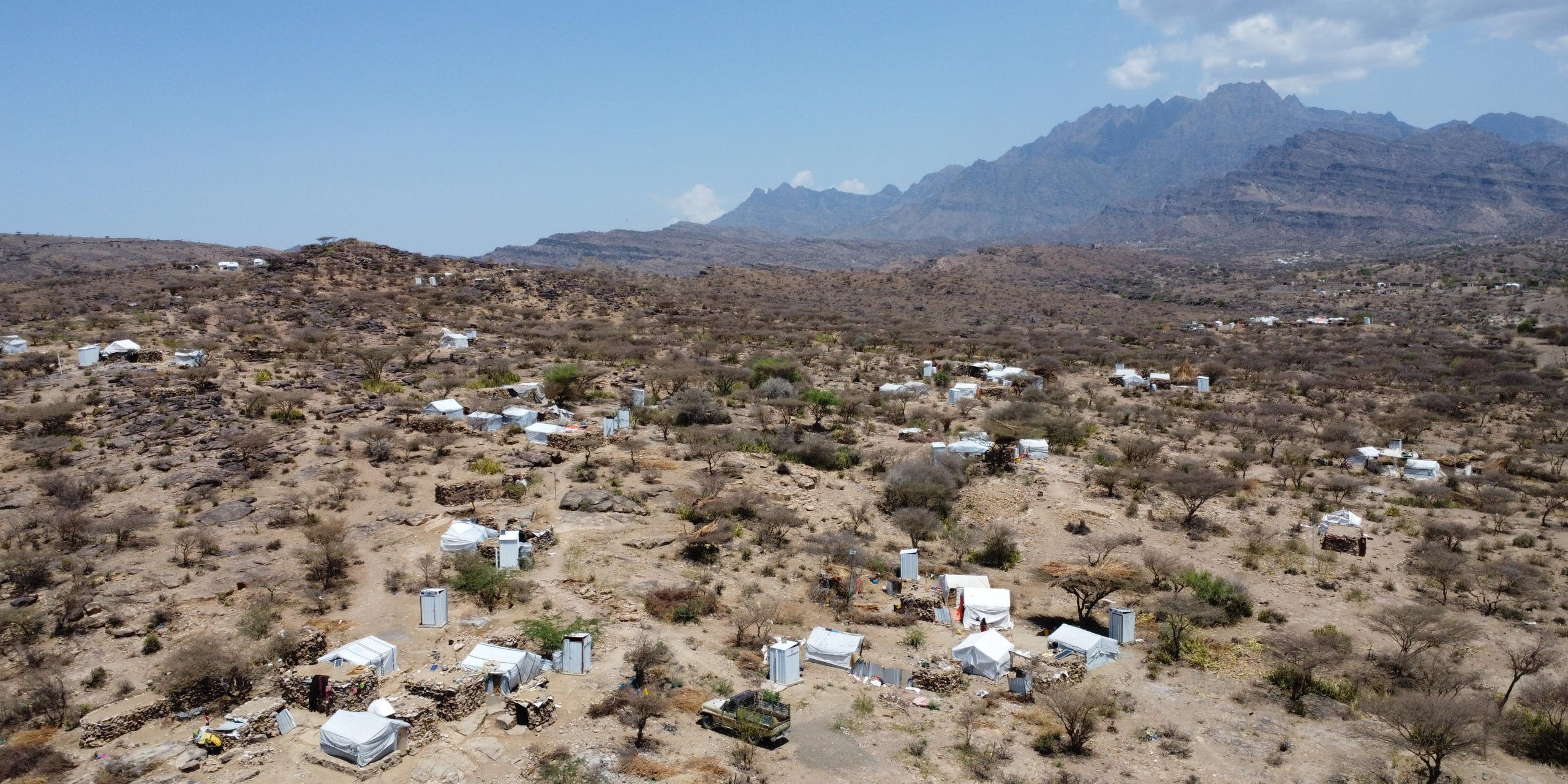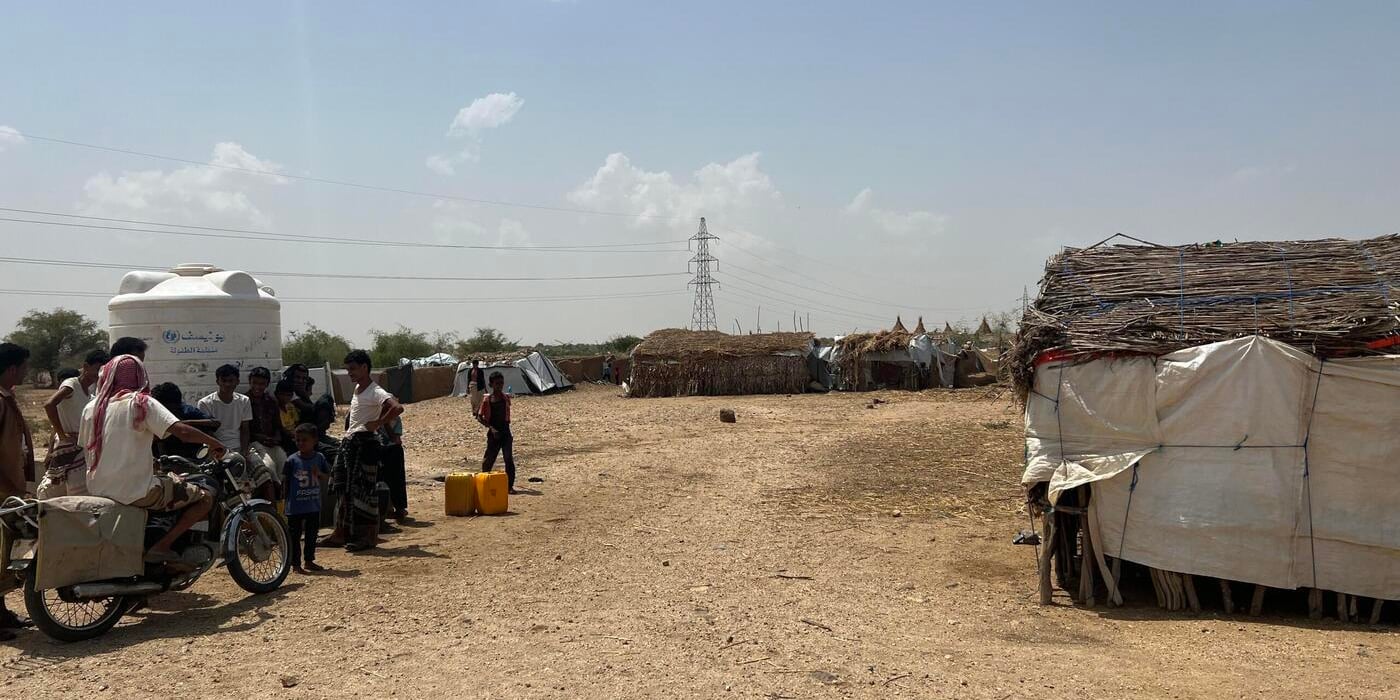
The crisis in Yemen enters its 10th year as plummeting funding means people have less to eat amid a chronic malnourishment crisis. Over 18 million – over half of Yemen’s population – are still in dire need of humanitarian assistance. Five million children and 2.7 million pregnant and breastfeeding mothers are acutely malnourished.
“The people of Yemen have endured untold hardship for far too long,” said Angelita Caredda, the Norwegian Refugee Council's (NRC) regional director for the Middle East and North Africa. “It is unacceptable that millions of innocent lives continue to hang in the balance due to the escalation of conflict in the region and the reduction of funding at this critical time.”
The truce agreed almost two years ago offered a glimmer of hope for peace and long-term stability in the country. However, escalated tensions and military strikes threaten to derail the peace process. Any hopes for a lasting ceasefire cannot be held without an urgent de-escalation in the Red Sea and stop of UK and US led military strikes across Yemeni cities and villages.
The 2023 Humanitarian Response Plan for Yemen was less than 40 per cent funded, the lowest funding rate committed by donors since the onset of the conflict. The pattern has so far continued this year with over 90 per cent of the required humanitarian funding still unmet.
“Instead of inflaming violence and tensions in Yemen, the international community must step up support for humanitarian funding and the peace process so Yemenis can recover from this brutal conflict,” added Caredda.
Funding cuts, particularly for food assistance, have resulted in families not having enough food to eat including in Ramadan. Some families reported selling home furniture they had left during the past three months while others have to borrow constantly in order to secure food.
Huda, a displaced mother of seven children who spoke to NRC when the food aid cuts took effect said, "I'm the sole breadwinner for my children, and we currently don't have enough food for the entire family. We are grateful for the neighbours who help us with some food, but if we received food baskets like before, we wouldn't need anyone [else's] assistance."
NRC calls on donors to urgently mobilise additional resources, particularly through scaled-up nutrition, health and cash assistance.
“We remain committed to support the most vulnerable people in Yemen, but the international community and all parties must push for a de-escalation and commit to supporting a neglected population grappling with hunger and displacement,” said Caredda.
Notes to editors
- 26 March marks nine years since the start of the conflict in Yemen.
- Over 18 million – over half of Yemen’s population – are in need of humanitarian assistance (OCHA).
- According to the Humanitarian Response Plan, at 39.3 per cent, the Yemen Humanitarian Response Plan for 2023 was the least proportionally funded. $1.71 billion was provided. The total required funding was $4.34 billion. Only $249 million has been allocated this year. Total required funding is $2.7 billion.
- According to IOM, 830 households, or 4,980 people were displaced between 1 January and 16 March. Economic reasons related to the conflict were the main reasons for displacement. Some 4.5 million people remain internally displaced in Yemen, with many displaced more than once (OCHA).
- Due to cuts, 9.5 million people have not received food aid for months with the World Food Program announcing a dramatic end to general food distributions across much of Yemen in December (WFP).
- There are currently 17.6 million people - half of the population of Yemen – that are likely severely food insecure (HRP).
For more information or to arrange an interview, please contact:
- NRC global media hotline: media@nrc.no, +47 905 62 329
- Ahmed Bayram, MENA Media Adviser, in Amman: ahmed.bayram@nrc.no, +962 79 0160147


